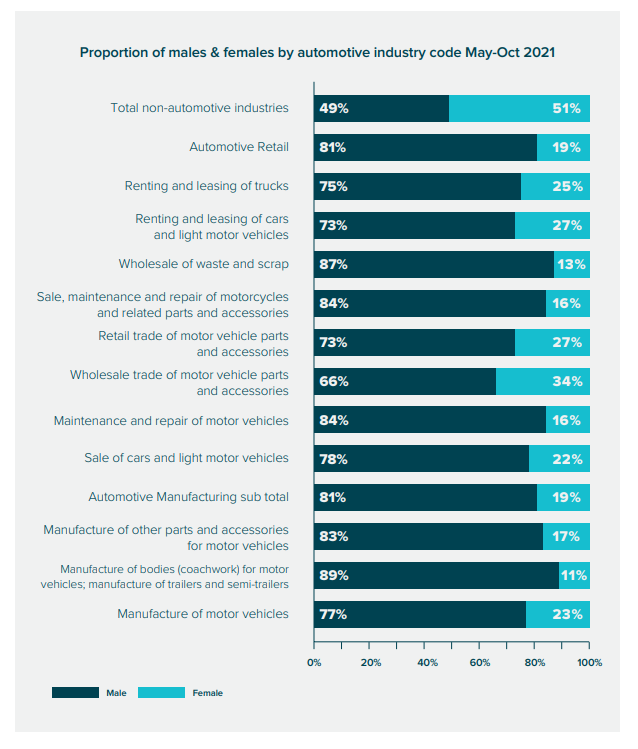The Institute of the Motor Industry (IMI) has called on automotive retail employers to engage with the task of creating a more diverse workforce after publishing the findings of its Diversity Task Force report.
The industry body drew on insight from a Physical and Non-Visible Disabilities Working Group, Race and Ethnicity Working Group and Gender and Sexual Orientation Working Group, made up of volunteers from across the sector to create the report, which has been published today (March 18).
IMI president, Prof Jim Saker, led the study which – he revealed in a recent AM News Show Podcast interview – had been inspired by a response to one of his columns in AM.
And the in-depth data that resulted from working group investigations has led to an unprecedented overview of the automotive sector’s workforce and a five-stage call to action for automotive employers to engage with the task of diversifying their workforce.
 IMI chief executive, Steve Nash, said: “The work of the Task Force has clearly identified changes that need to be made by the sector, but it has also challenged our own perceptions and work practices.
IMI chief executive, Steve Nash, said: “The work of the Task Force has clearly identified changes that need to be made by the sector, but it has also challenged our own perceptions and work practices.
“At times it has been uncomfortable, but diversity and inclusion are of strategic importance to us, and so we have already made changes to the way we work, and will continue to make more.”
The IMI Diversity Tasks Force’s research, carried out between May and October last year, identified that 14% of the automotive retail workforce had a disability, with 16% of sales staff and 26% of those working in parts and accessories having some level of disability.
This compared to 15% in non-automotive industries.
The Task’s Force’s insight into the ethnicity of the sector, meanwhile, found that 81% of the automotive retail sector’s employees identified as white-British, compared to 56% in other industries.
The report said: “Non-white-British are significantly under-represented in automotive retail sector.”
 In gender terms, male employees also account for 81% of automotive retail employees, aligning to a further clear disparity in representation.
In gender terms, male employees also account for 81% of automotive retail employees, aligning to a further clear disparity in representation.
“From an industry perspective, women are significantly under-represented in the automotive retail sector, with just 19% women, comparing the non-automotive industries; in the nonautomotive industries the gender split is 49% males and 51% females. The underrepresentation of females is the most significant of all variables tested (ethnicity, disabilities etc).”
Work clearly needs to be done.
Cox Automotive International HR director, Alison Fisher, Auto Trader chief operating officer Catherine Faiers and Ennis & Co founder Lynda Ennis joined Saker in underlining the need for greater D&I in the automotive retail sector for a news insight feature in the February edition of AM magazine.
In its comments on diversity, submitted to the report, Jardine Motor Group said: “Based on our external research in 2015, just 2% of women identified automotive as an industry where they could progress a career with 31% of those surveyed referencing automotive as a ‘macho’ environment.
“Whilst the research was in 2015, we still believe that these perceptions remain.”
Calling on automotive employers to engage with the task of levelling-up the sector – and broadening its potential pool of employees in the process – the IMI has laid out a five-stage action plan.
Here are its key recommendations:
- Strategic Importance – Signal your commitment to the whole business by putting diversity and inclusion on every Board and Senior Leadership team agenda.
- Know your Workforce – Many people choose not to share information about disability, gender, sexual orientation, religion, ethnicity etc., with their employer. Make a commitment to understand your staff through better data collection and communication.
- Small changes, big difference - Many workplace changes or adaptations require very little investment but can significantly improve someone’s ability to perform their job. Commit to asking your staff what changes would make a big difference to them.
- New Perspective – Commit to reviewing everything through a new ‘lens’ of diversity, equity and inclusion. Look at your policies, procedures, website, customer journey, and ways of working and collaborate with your colleagues to create an inclusive environment.
- Change Perceptions – To attract and retain talent into the automotive sector we need to clearly demonstrate that great career opportunities are open to all. Commit to proudly showcase a diverse senior leadership team or use diverse role models in outreach programmes for schools, for example. If you are proud to work in automotive, shout about it.















Login to comment
Comments
No comments have been made yet.